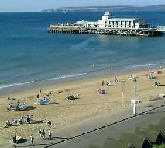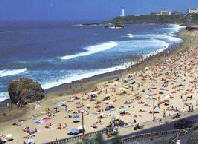|
Though not directly comparable to current requirements, the Commission believes the standards are slightly tougher and justified by the increased health benefits. Despite this, it says the standards would still lead to a five percent chance of contracting gastroenteritis in "good" bathing water.
UK Environment Minister Michael Meacher led the general scepticism of the Commission's calculations. "If that was so, our public health figures would show 1.5 million cases, but it doesn't even figure in our surveillance data," he said.
Meacher was among several ministers to question the Commission's cost-benefit analysis. UK calculations showed that meeting the new standards would cost UKŁ25bn (€36.2bn) over 25 years, almost three times as much the benefits.
There would be a "very significant problem" in implementing them, Meacher said. Over 15 percent of UK waters compliant with current targets would fail the new ones.
Belgian Environment Minister Olivier Deleuze said the equivalent figure for his beaches was 30 percent, and also queried whether the "financial effort is proportionate to the environmental benefit."
Spain and Portugal said they needed more evidence to show the new standards would increase bathers' health benefits before making the investment.
Several ministers said the new standards would only be acceptable if they could ban bathing in certain waters for short periods when the requirements could not be met.
French minister Roselyne Bachelot produced the most detailed
suggestions to amend the Commission plan. The draft law
should be revised using the two new parameters but with weaker
standards exactly equivalent to existing ones, she said.
|

